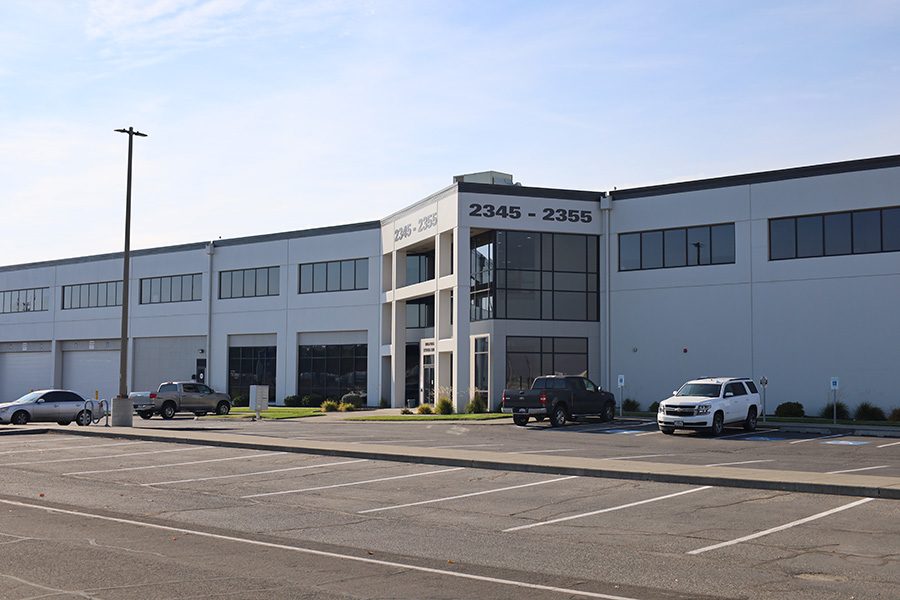
Home » Nuclear fusion company plans move to Tri-Cities
Nuclear fusion company plans move to Tri-Cities

Startup company Avalanche Energy wants to move into port-owned property at 2345 Stevens Drive, a Port of Benton property. The port discussed the lease during its October commission meeting.
November 14, 2024
A west side nuclear fusion company says it’s excited to come to Richland to support its work in the Seattle area.
Startup company Avalanche Energy wants to move into property at 2345 Stevens Drive, the Port of Benton’s largest asset. The port discussed the lease during its October commission meeting.
“(The) Tri-Cities has a long and celebrated history of innovation in nuclear energy and Avalanche is very much looking forward to working with the community, including (Pacific Northwest National Laboratory) and (Washington State University Tri-Cities) to bring fusion energy to fruition. The collaboration with the Tri-Cities Development Council and Port of Benton will be an important and critical part of that mission,” said Robin Langtry, CEO of Avalanche Energy, in an email to the Tri-Cities Area Journal of Business.
Currently, Veolia Nuclear Solutions is the tenant in the part of the building that Avalanche would lease. The space is 20,341 square feet, including 3,133 square feet of office space and 17,208 square feet of warehouse space.
Veolia’s lease is coming to an end, but the port won’t release the company of its obligations until a lease with Avalanche is secured, said Diahann Howard, the port’s executive director.
Avalanche
Avalanche got its start in 2018 and its first venture capital backer in 2021. The company is now fully venture capital-backed at $45 million, Howard said.
Located near the Museum of Flight in Tukwila, the fusion company has 50 employees and works on micro reactors. It’s also been a part of the VERTical innovation cluster, a coalition led by the port to accelerate the transition to advanced clean energy technologies.
Avalanche is working to research and develop a 1-100kWe compact fusion machine called “Orbitron, which is small enough to sit on your desk,” according to Avalanche’s website. Its applications include micro-grids, transportation and lunar surface power.
They have three micro fusion reactors up and running, said Karl Dye, president and CEO of TRIDEC, during the port meeting.
Howard said that the radioactive element in this work is tritium, which is also used in exit signs. Dye said that because it’s a process of fusion, not fission, “the radioactivity level is very, very low.”
Avalanche would invest $30 million in Richland and add a projected 23 to 60 jobs in Richland from 2027-31.
Outside of the port-owned building, Avalanche would need to build another facility, Howard said.
“We hope that Richland would become that location for ultimately manufacturing and meet their domestic and international demand, and we could really help create the supply chain that goes with it,” she said. “This is very much in alignment with what we’ve envisioned with small modular reactors, it’s now the next evolution of that.”
Additional agreements
In addition to signing an agreement with Avalanche, the port is waiting for a three-way agreement between the port, Avalanche and TRIDEC before releasing Veolia from its lease.
During Veolia’s tenure at 2345 Stevens Drive, the company built a cleanroom, or a highly controlled environment. Its work helped with cleanup after the Fukushima nuclear accident in Japan, Howard said.
Veolia had originally planned to take the cleanroom out at a cost of about $320,000, but it has agreed to leave it and other equipment behind for Avalanche, which had an interest in those improvements.
Avalanche “will indemnify the port of the cleanroom and its removal at their cost with support from TRIDEC,” Howard said, hence the three-way agreement.
TRIDEC has been working with Avalanche for about a year, Dye said, and has offered to help offset the cost of the cleanroom by $150,000. The port also has requested a performance bond, or a financial guarantee it will fulfill the terms of a contract.
“Avalanche would assume the risk of this cleanroom. They would also assume the decommissioning and have to go through the state decommissioning permitting similar to what Veolia just completed,” Howard said.
Because they’re a startup, Avalanche will pay only a three-month security deposit. The port also would give the company a phase-in rate on its lease, with a lease of $114,700 for the first year.
Positive impact
Howard said that the opportunity is a “positive one for the community and the state of Washington. It aligns with our economic development goals and our vision at the city of Richland and the Port of Benton for advanced manufacturing and clean energy.”
“This technology that would be deployed and activated at the Port of Benton site would be a real key for a lot of the material science research that PNNL is doing across the nuclear field,” Dye said.
He wanted to reassure the port that “we’re committed to backing this up.”
Port commissioners unanimously agreed to proceed with the lease agreement and the site location three-way agreement.
Latest News Real Estate & Construction Local News Energy
KEYWORDS November 2024
Related Articles
Related Products




